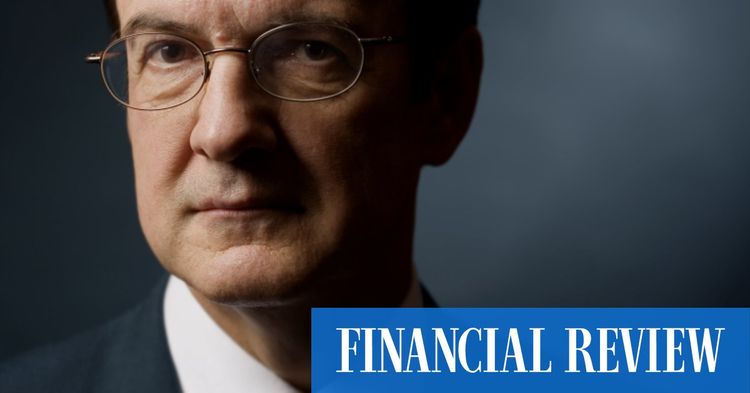Ziggy Switkowski's guide to making it at PwC

That was his brief, and to be fair to PwC, it hired others for the granular stuff. But that doesn’t make Switkowski’s investigation useless. If read as a guide to how to get ahead at the firm, it’s a veritable treasure map.
So, follow these simple steps, young buck, and you too can become implicated in a global tax-avoidance scheme one day. It won’t be easy, but just close your eyes and think of the harbourside mansion you’ll have to show for it.
At PwC, Switkowski’s investigations note, seniority is the intersection of tenure and popularity.
“To thrive as a partner in such a large and complex system, a strong internal network is critical, and sufficient energy is invested in cultivating this,” he writes.
It helps to start as a graduate. For outsiders, the PwC jungle is not easily navigated, described by “lateral hires” as “chaotic and out of control” until they twig that the only thing that really matters is who they know.
We do wonder at what stage in the investigation did Switkowski realise he could be describing the Cosa Nostra? We can softly hear the Ennio Morricone score already!
Nowhere is this more evident than in the selection of PwC’s all-powerful and all-important CEO, appointed in a partner election process full of “cronyism”. Even worse, whatever God King triumphs then has a “mandate” and looms over the board with “relatively unchecked authority”, “other than maintaining popularity”. Questions to and disagreements with the CEO, some noted to Switkowski, are put only in the most delicate terms by their closest allies.
“Winning the CEO election … relies on allegiances across the partnership,” the review states. Being a lifer helps, and in 2020 when Tom Seymour emerged triumphant, the final candidates all fit a similar mould, “having worked their way up the ranks”.
Cut from the same clothOnce there, these CEOs perpetuate the system. So, for the enterprising would-be partner, brown-nosing never hurts.
“The overwhelming perception is that a new CEO appoints close, trusted colleagues to key internal roles.” This replicates all the way down; key positions everywhere awarded on the basis of loyalty, with what Switkowski describes as little focus on “capability-based criteria”.
Of course, outwardly, PwC’s promotions prioritise all sorts of diversity. Cognitively though, most are cut from the same cloth.
Climbing up the greasy pole in this world of skin-deep variety isn’t achieved by antagonising one’s colleagues. That’s a path to social and professional death. And it’s not just us saying it.
A belief in the career-limiting impacts of dissenting views was reinforced to Switkowski “through stories told of people who had the courage to challenge but experienced negative consequences as a result”. One wonders if these individuals of “courage” within PwC’s walls view responsibility as an intricate “tapestry”?
Thankfully for everyone else, PwC’s “good news culture” means the average employee probably won’t often have to deal with unpleasantness.
Under Seymour’s “business empowerment” strategy, the firm was split into three businesses which generally run their own shops, and risk and compliance matters are generally handled in-house by one’s direct manager. Where this is insufficient, major disciplinary and ethical lapses are discussed only in exceedingly small circles, with not even PwC’s board provided with more than oral reports of major legal issues involving the firm.
When a body such as the Tax Practitioners Board makes disastrous decision-making blatant and unavoidable, senior leaders will speak of “troublesome practice matters” (yes, TPMs) only “in riddles”, alluding to pitfalls in the manner of impenetrable sages rather than in the blunt language of accountability. The point isn’t to hammer their colleagues/constituents, but to get through the awkwardness as delicately as possible.
If it’s your unfortunate responsibility to look into a TPM, past practice suggests it’s best to take as long as possible. For example, Switkowski writes, external investigations into Peter Collins’ breach of a confidentiality agreement began in March 2021, but PwC didn’t start looking at the issue until May 2023. Sure, it hasn’t exactly worked this time, but we doubt the incentives have markedly shifted for everyone who survived the great PwC implosion.
Unavoidably and most importantly, it also helps to make your colleagues rich.
In recent years, PwC’s focus has been on being the biggest and most profitable it can be. It’s all “revenue revenue revenue”, with considerable pressure applied to those who aren’t reeling it in.
‘Revenue is king’“Partners sense considerable pressure to meet financial targets,” the report states. In leadership meetings, which parts of the business are making or taking revenue is regularly discussed. It’s anxiety-inducing, with salary transparency meaning partners are constantly comparing themselves to others in terms of who is actually earning their keep.
Those who do bring in the dough are untouchable, and the rules don’t seem to apply to them.
“Interviewees and focus groups consistently reported that at PwC Australia ‘revenue is king’ and partners who exceed financial targets are celebrated as ‘heroes’,” Switkowski wrote.
There’s the path. And while you angle for every dollar and compliment every colleague, always remember who you’re dealing with. PwC’s operatives are precious, brilliant petals, “high achievers” notable for “a lack of comfort in accepting the fallibility of humans”. Their biggest weakness, the report seems to argue, is their utter, wide-eyed perfection. A pity the system let them down.
In Switkowski’s mind, if only PwC had better processes and governance, every Tom, Dick and Harry in an MJ Bale suit would not have committed the sins.
But rotten cultures are not sprung into existence. They are created by rotten people making rotten choices. It’s the people, Ziggy. It always has been.









































